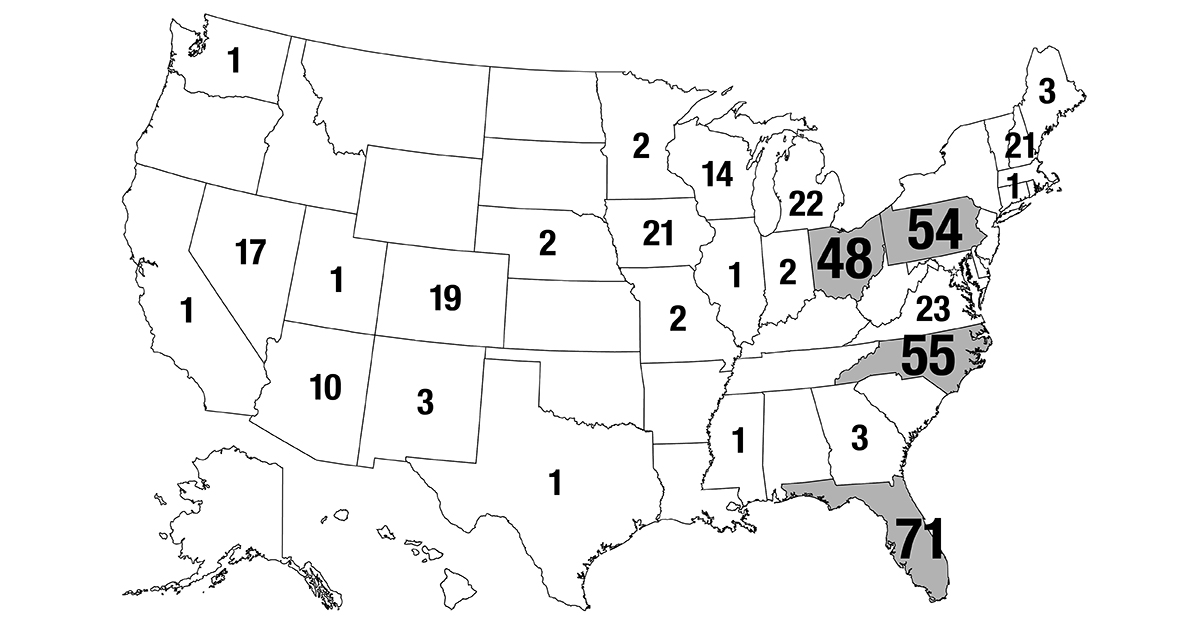It would be easier to persuade me if the people calling for the college to be removed were not people who just lost in an election and want to retool the system to help them.
You know this goes both ways right? It'd be easier for me to believe you actually like the electoral college and not the result if your side didn't just win. So far your reasons for liking the electoral college don't carry much weight, especially when you call the other side crybabies.
Once again, keep this election. It's done. 2000 is done, keep it. But that doesn't make the electoral college the right system.
It is less that I believe the Republican party is weaker or the Dems are stronger. I just don't see what needs fixing. The electoral college was set up as a balance. I stated that in my other posts.
What does it balance? It doesn't balance rural vs urban. It doesn't balance Republican vs Democrat. The redistribution goes from non-swing states to swing states, that's the advantage, you'd have to argue that for some reason, swing states
need that special attention and non-swing states (both populous ones like CA or TX and less-populous ones like Oregon or Alabama) need less attention.
As for skewed by "regional issues" what is the problem? A certain region might have issues that are a big deal to them. They might not be the same as other states. Why should they not matter?
Regional issues should have weight relative to the number of people affected by it. So coal should have
some weight, but it shouldn't dominate over other issues that non-swing states have.
Coal is a big thing in West Virginia. They have coal, but a lot of coal worker have been put out of work due to the EPA and Obama's energy policies. Does their voice and concern not matter because someone in Washington this natural gas or solar energy is the way to go?
It's like you're actively avoiding reading up on this. The EPA isn't what's putting coal out of business, the market is. And it's natural gas that's doing it (as much as I wish we found some cheaper, even cleaner renewable) and it's not because of regulation.
Matter of fact, I was going to post a bunch of links about how it's natural gas, not regulations, but I guess you'd say I was cherry picking? So instead, just google "Why is coal in decline?" (or I dunno, ask jeeves it if you don't trust google). Seriously.
I guess I'm going out on a limb thinking that you're a free market kind of guy, but coal isn't coming back unless/until natural gas isn't dominating it. I wish I could credit my elected leaders with standing up for the environment, standing up against coal but the simple truth is that it was other businesses that did it.
Want to know why we stopped talking about the Keystone XL? If you read the Perryman Group study (the study funded by TransCanada) every single model for job growth they used assumed gas prices would either go up a lot, or in their most conservative model that it would go up a little (and the study
needs the oil to be very profitable to generate the "jobs" because the pipeline itself doesn't need that many people to work on it or to maintain it afterwards, it's the idea of cheaper gas that gets it going).
It's incredibly frustrating that even when the market does its work, and a business goes down because it's not competitive, people still blame politicians.
Sadly, for the people that supported Trump that think he'll bring back coal... he lied. That really sucks. No doubt he'll blame something else (even though republicans will have control of all 3 branches of government), but that's still gonna cause suffering for those folk.
And all of that answers your next statement:
If someone wants to push for cleaner energy but wants to get those votes, offer them a solution that does not involve coal.
It's natural gas. Which means a lot of the people that hate fracking are going to be disappointed, because it's incredibly profitable, but that's another story.


